Returning Crimea and Donbas: What challenges will Ukraine face after the counteroffensive? (Part 2)
- What to do with russian documents and legislative decisions?
- The issue of Ukrainisation in the liberated territories
- How will reconciliation between the residents of the previously occupied territories and other regions of Ukraine be carried out?
- How long will it take to reintegrate Crimea and Donbas?
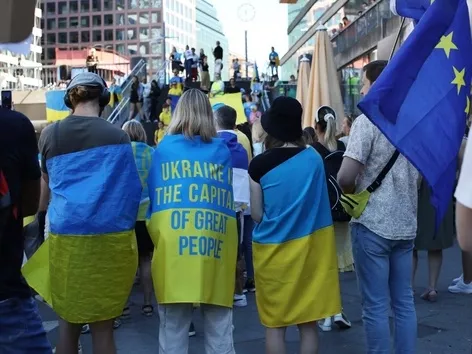
Ukraine is just beginning to take steps to return all the occupied territories, but the country must now be prepared for the challenges it will face along the way. Find out what experts call the most difficult problems in the process of reintegration of Crimea and Donbas
Earlier, we talked about Ukraine's political and economic preparations for victory and some of the challenges the country will face on the path to reintegrating the de-occupied territories. Today, we will discuss a number of other important issues that are inextricably linked to the return of Donbas and Crimea to Ukraine's control.
What to do with russian documents and legislative decisions?
Despite the occupation, life in the temporarily uncontrolled territories of Ukraine was going on: people were born and died, bought real estate and other property, and applied to law enforcement agencies and courts. Therefore, the local population will have a lot of questions to ask the Ukrainian authorities after the de-occupation of the settlements, and Ukraine will have to work with millions of documents that will remain after the russian federation.
The current system provides for individual work with each such document, but given the volume of documentation, the judicial system will not be physically able to process each application and make a decision on the recognition of the document.
The Ukrainian authorities have already taken this issue under consideration and proposed to introduce a system whereby documentation will be divided into certain groups with different levels of priority. In addition, the Verkhovna Rada proposed to adopt a reform that would allow such issues to be resolved at the administrative level rather than through the courts.
Previous court rulings in cases of murder, rape and other serious crimes will have to be reviewed in Ukrainian courts, which will also affect the workload of the judicial system. However, it is already known that Ukraine will cancel a significant number of decisions of the occupation authorities immediately after the de-occupation of the territories. In particular, we are talking about the illegal nationalisation of property and criminal prosecution of individuals, which is considered politically motivated and unfounded in Ukraine.
At the same time, the final algorithm has not yet been determined, which already raises many questions among those who expect Ukraine to win in the occupied territories. Moreover, experts believe that the procedure for processing documents should not be too complicated, as uncertainty and the need to apply to state authorities for recognition of each document separately will lead to discontent among the local population and play against Ukraine. Therefore, the state should define a clear procedure for processing documents in the near future.
The issue of Ukrainisation in the liberated territories
The vast majority of experts who commented for the BBC are convinced that all the de-occupied territories should switch to the Ukrainian language, but the transition should be gradual and balanced.
Obviously, the language legislation of Ukraine cannot come into full force immediately after the liberation of the territories, but the Ukrainian authorities believe that the transition should first take place in the media and in schools. For this purpose, it is planned to attract teachers from other regions of Ukraine. In addition, the authorities propose to create a special system that will allow everyone to learn the Ukrainian language.
However, the process of Ukrainisation of Crimea and Donbas should not force people to speak Ukrainian in everyday life, as this is likely to provoke resistance from the population. At the same time, insufficient focus on this issue could lead to a split in society not only in the previously occupied territories but also in other regions of the country. Therefore, Ukraine must find the perfect balance and motivate the population to switch to Ukrainian, for example, through career opportunities.
Visit Ukraine on social media: Telegram | YouTube | Instagram | Facebook | Twitter | TikTok
How will reconciliation between the residents of the previously occupied territories and other regions of Ukraine be carried out?
Reconciliation and unification of Ukrainian society, which is partly on opposite sides of the barricades, is one of the most important and at the same time most difficult issues. Experts predict that some people who are not ready to live in Ukraine will leave on their own. But a significant number of people will remain, and the transition phase will be the most difficult, especially for those who lost loved ones during the russian invasion.
Therefore, according to the experts, Ukraine should not create obstacles to the normal life of people in Crimea and Donbas. Moreover, the state should create conditions in which every Ukrainian, from any region of the country, will have the opportunity to live freely, develop, work, study, build their own business and travel.
Another important part of the future reintegration should be combating the effects of russian propaganda and working with young people. These two key areas play perhaps the most important role in reconciling Ukrainians. And while the influence of russian propaganda is clear, the gentle Ukrainisation of young people who grew up in the occupied territories is an even more complex process that involves transformation not through pressure, but through providing opportunities, not those that the authorities see as right, but those that are really interesting to young people.
How long will it take to reintegrate Crimea and Donbas?
According to experts, the transitional phase, which includes restructuring and adjusting internal processes, can take about 5 years. But the real psychological reintegration of the local population will take at least 10 years.
And if we compare the current processes with historical facts, it will take more than one generation of Ukrainians to fully recover. This was the case, for example, in Germany after the Second World War.
For Crimea, experts predict an easier reintegration process, as despite the occupation, Ukraine has tried to maintain contact with the indigenous population of the peninsula, in particular through the Crimean Platform, which was first held in 2021. The situation with Donbas is much more complicated, as there have been almost no such ties, and reintegration is also complicated by the direct hostilities that have taken place since 2014, mostly in eastern Ukraine.
However, Ukraine must now create a strong and firm foundation for overcoming all future challenges by providing clear explanations of all the processes that will take place in the country during the transition period and after it. This will allow us to build a united, free and independent country.
We believe in the Victory and the Armed Forces of Ukraine!
We remind you! The Armed Forces of Ukraine have seized the strategic initiative and are advancing in almost all areas of the frontline. You can find out what the map of the fighting looks like today and how the world is reacting to the first month of Ukraine's announced counter-offensive and its prospects in our previous article.
Photo: wowwoman.com
You may be interested in:
Visit Ukraine Donation - make a good deed and an important contribution to the Victory of Ukraine;
Visit Ukraine Tours - the largest online database of tours to Ukraine for every taste;
Visit Ukraine Merch - choose patriotic clothing and accessories with worldwide delivery;
Visit Ukraine News - get the latest news and updates in our Telegram channel;
Cooperation - cooperation and advertising integrations with Visit Ukraine and Visit World projects.
Recommended articles
2 min
Krieg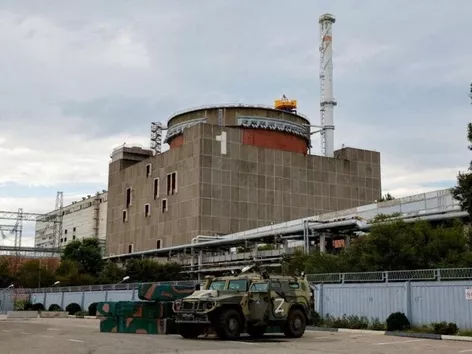
Terrorist attack on ZNPP: what is known about the preparations and what to expect from russia
On the evening of June 25, the Ukrainian authorities announced that the plan for a terrorist attack on the ZNPP had been fully developed and approved. Find out why the situation at the plant is called critical and what to expect from russia
26 Jun. 2023
More details2 min
Krieg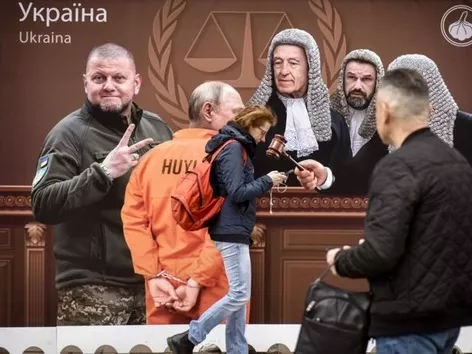
The deaths of Zaluzhnyi and Budanov: why russia is spreading fake news
Back in early May, russia launched an PSYOP claiming that Zaluzhnyi and Budanov had died, and now the information campaign has only gained new momentum. Find out why russia is spreading fake news and what the benefits are
01 Jul. 2023
More details2 min
Kultur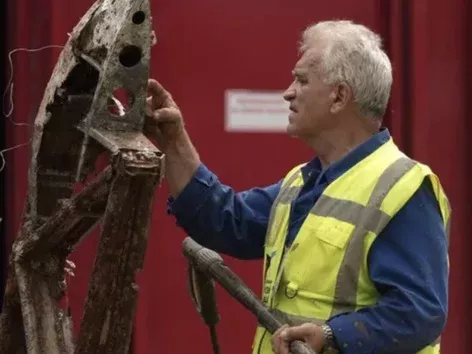
What does the discovery of British Hurricane aircraft near Kyiv mean?
During archaeological excavations near Kyiv, 8 British Hurricane fighters from World War II were found. Find out what kind of planes they are and why the discovery revealed another lie of the kremlin authorities
03 Jul. 2023
More details3 min
Beliebt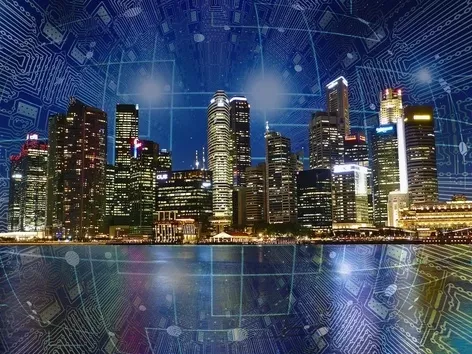
Smart City Ukraine: what it is and how it works in Ukrainian realities
The smart city system is a global trend that first began to be used in 2009. Find out what is wrong with Smart City in Ukrainian cities and at what stage is the technological development of this system in Ukraine
04 Jul. 2023
More details

